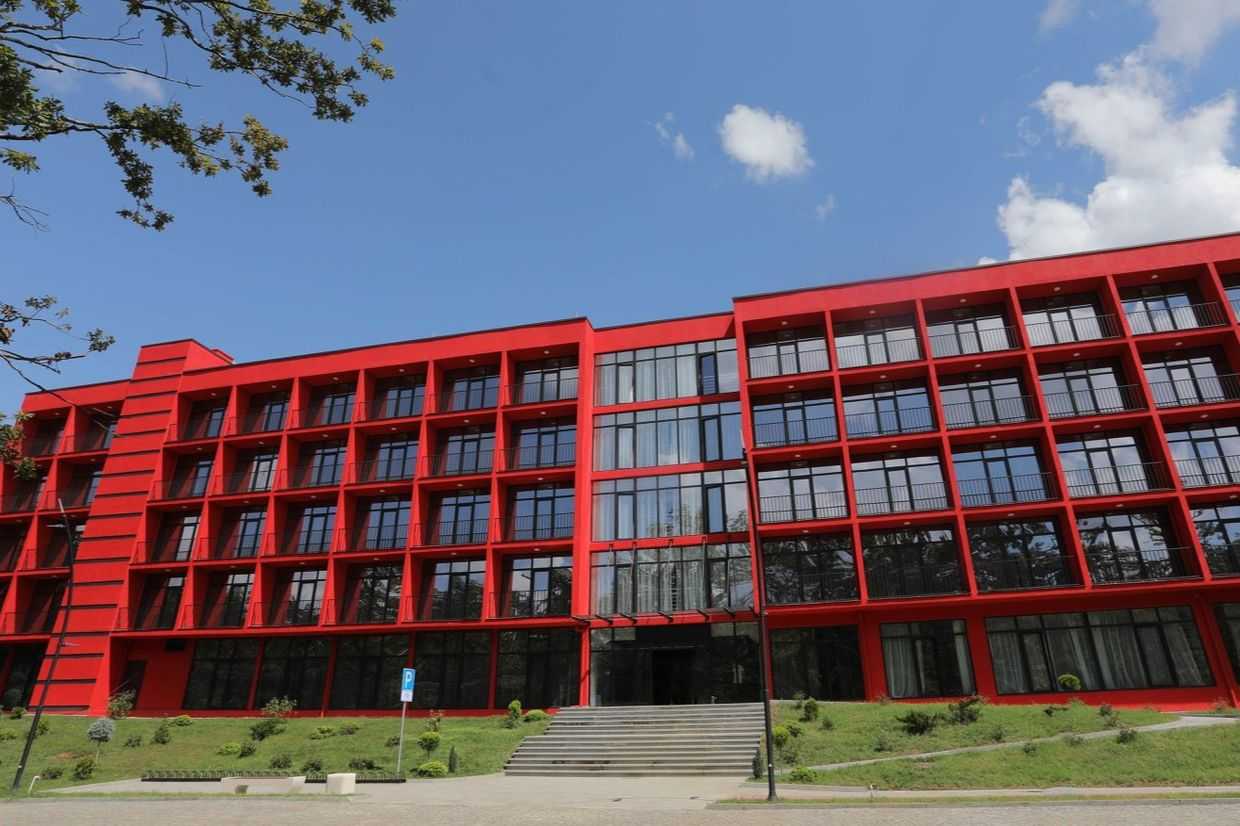
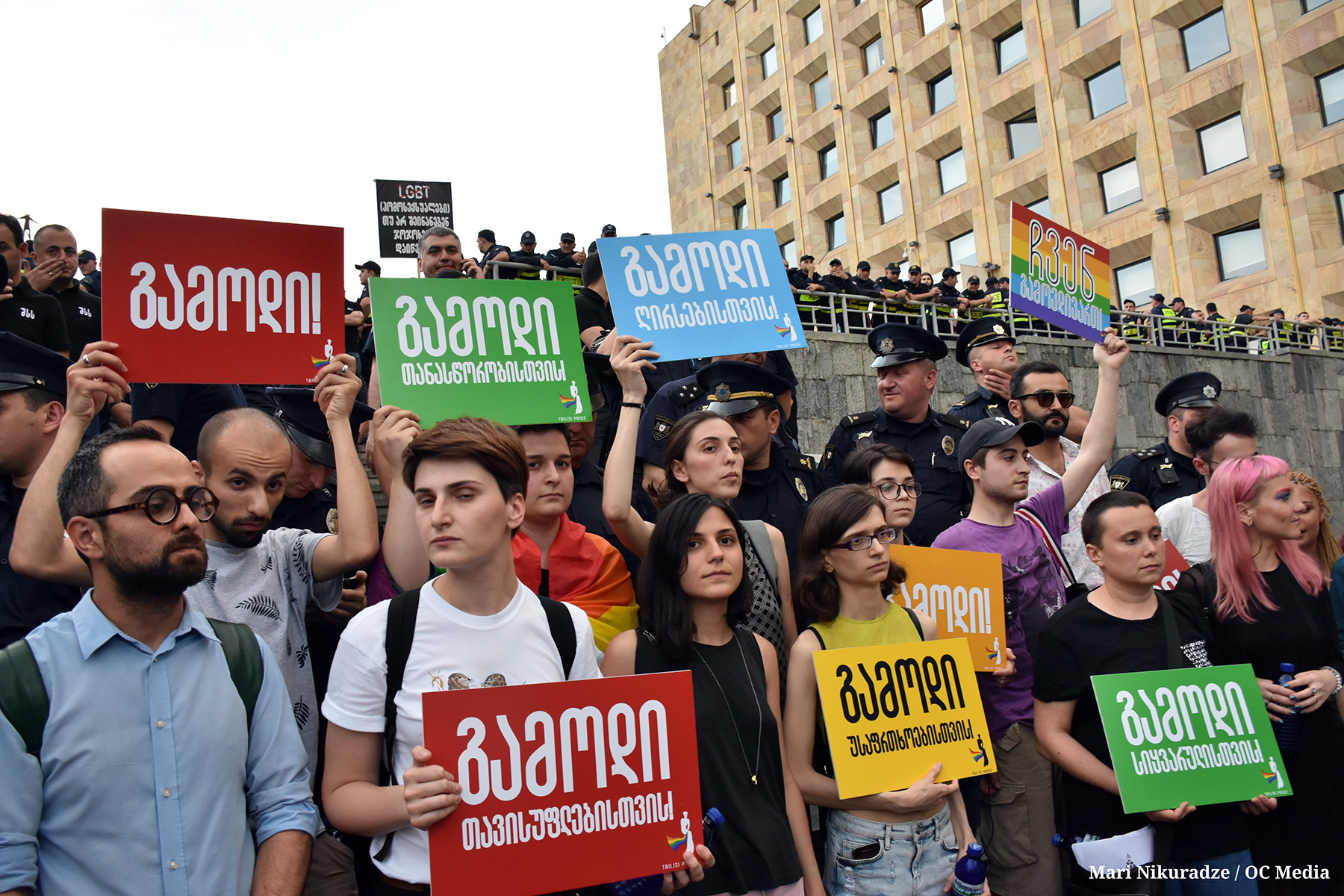
Georgia’s Prime Minister Mamuka Bakhtadze has said that the queer rights are not a ‘problematic issue’ in Georgia, despite a homophobic mob surrounding and attempting to attack a small gathering of queer rights activists last week.
At a press briefing on 17 June, Bakhtadze said that the upcoming Tbilisi Pride event was being ‘artificially forced’ on Georgian society and ‘serves the purpose of an aggressive agenda’.
‘I don’t think that this [queer rights] is a problematic issue in Georgia. Georgia has corresponding legislation, human rights are protected’, said the Prime Minister.
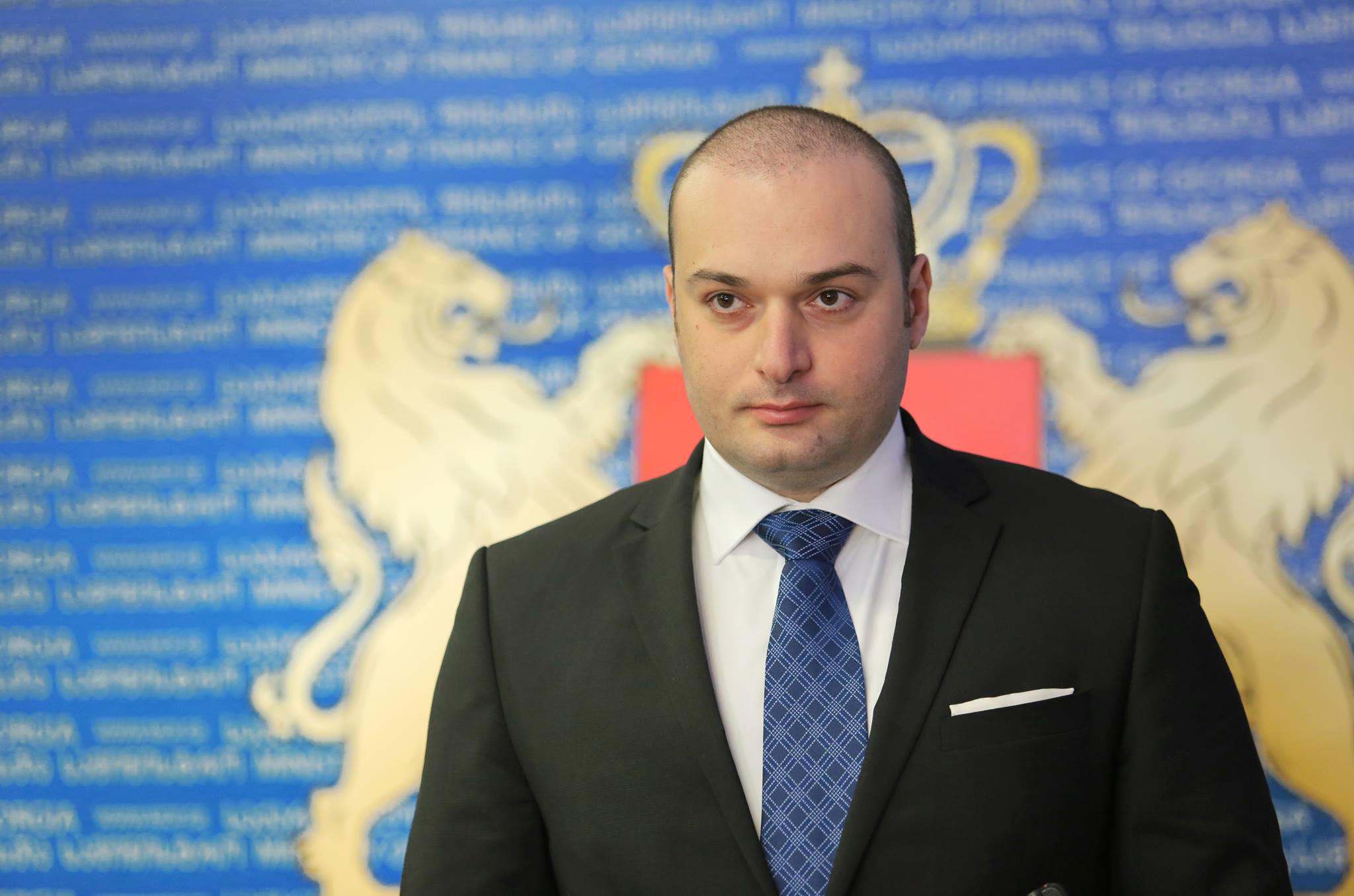
He added that the extent of homophobia in Georgia was being ‘exaggerated’, while the real problems Georgia faced were ‘occupation’ and ‘poverty’. ‘We’d rather focus on resolving these issues’, he said.
On 17 June, Public Defender Nino Lomjaria met with the Interior Ministry to discuss Tbilisi Pride. Following the meeting, she said that the Interior Ministry was opposed to Pride taking place over safety concerns.
‘The Interior Ministry said that their concern is not only Tbilisi Pride members’ safety, but safety in general. The ministry said that the pride event should not take place because it’s connected with serious safety risks. This was the main topic of discussion’, said Lomjaria.
The Georgian Orthodox Church issued another statement the same day arguing that freedom of expression was not absolute according to Georgia’s constitution, and could be limited if it contradicts ‘moral values’.
‘It’s a fact that they want to hold a demonstration in an environment where for people of different ethnicities and religions, this act is perceived as immoral and insulting and triggers fair protest among protectors of traditional values’, the Church said.
The comments came three days after several dozen queer rights activists were confronted and surrounded by a homophobic mob, who threw eggs and bottles and repeatedly tried to break through the police cordon.
On Friday evening, a small impromptu gathering of organisers and supporters of Tbilisi Pride protested outside the Government Chancellery building demanding high officials, including the PM, pledge to protect the event.
On 31 May, the Interior Ministry announced that it was ‘impossible’ for Pride to go ahead in the planned locations in the city centre ‘due to safety risks’. Organisers have insisted they will still go ahead and were demanding the government guarantee their safety.
The impromptu gathering was organised after the head of the Georgian Orthodox Church, Patriarch Ilia II, said that Tbilisi Pride was ‘completely unacceptable’ and aimed to provoke ‘unrest and conflict’ in Georgia. The Patriarch urged the government not to allow it to take place and said queer people were pretending to be persecuted in order to get foreign donor money.
After queer rights activists announced the gathering in front of the chancellery of the Georgian Government, several ultraconservative and far-right groups mobilised supporters on the same area half an hour before it was due to begin, chanting homophobic slurs.
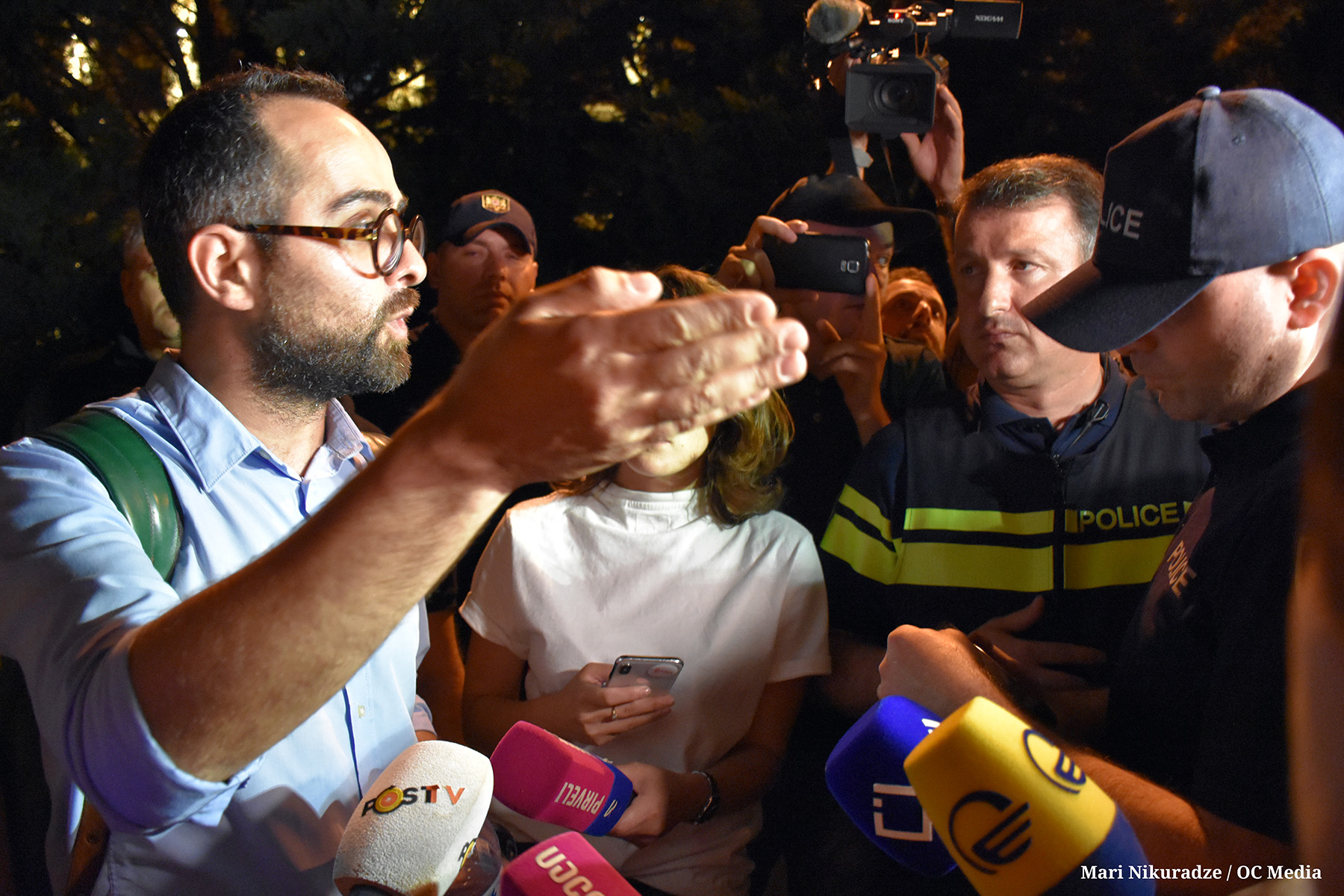
Pride organiser Giorgi Tabagari was briefly rushed away by police after he was hit with an egg, before being returned to the demonstration.
Queer rights protesters were prevented from holding a demonstration in front of the Chancellery and were instead pushed to stand on the nearby stairs, sandwiched between layers of police and counter-protesters who were trying to reach them.
Despite their demands, activists did not receive safety guarantees and neither the PM nor Interior Minister made statements.
Eventually, queer activists said they would disperse and go back to the negotiation table with the MIA. They were escorted to safety eventually.
After a six-and-a-half hour siege, the activists said they would go back to the negotiation table with the Interior Ministry in the early hours of Saturday morning and were evacuated by police.
According to the Interior Ministry, 28 of the counter-protesters were arrested during the evening. An investigation was opened for hindering journalists’ work and threats made against the deputy Public Defender.
[Read more about the homophobic siege on OC Media: Arrests in Tbilisi as queer rights activists and homophobic counter protesters face-off]
Tbilisi Pride is due is to take place on 18–23 June in Tbilisi and includes cultural events, an international conference, and the pride march.
‘Illegal civil units against Tbilisi Pride’
At a gathering of ultraconservative groups on Sunday, businessman Levan Vasadze urged the public to prevent the pride march from going ahead.
He announced plans to set up a ‘people’s legion’ to detain pride marchers and said the units would patrol the streets and cut through police lines during Tbilisi’s first pride.
The Interior Ministry has launched an investigation into Vasadze for the ‘creation of an illegal formation’, which is punishable by up to 12 years in prison.
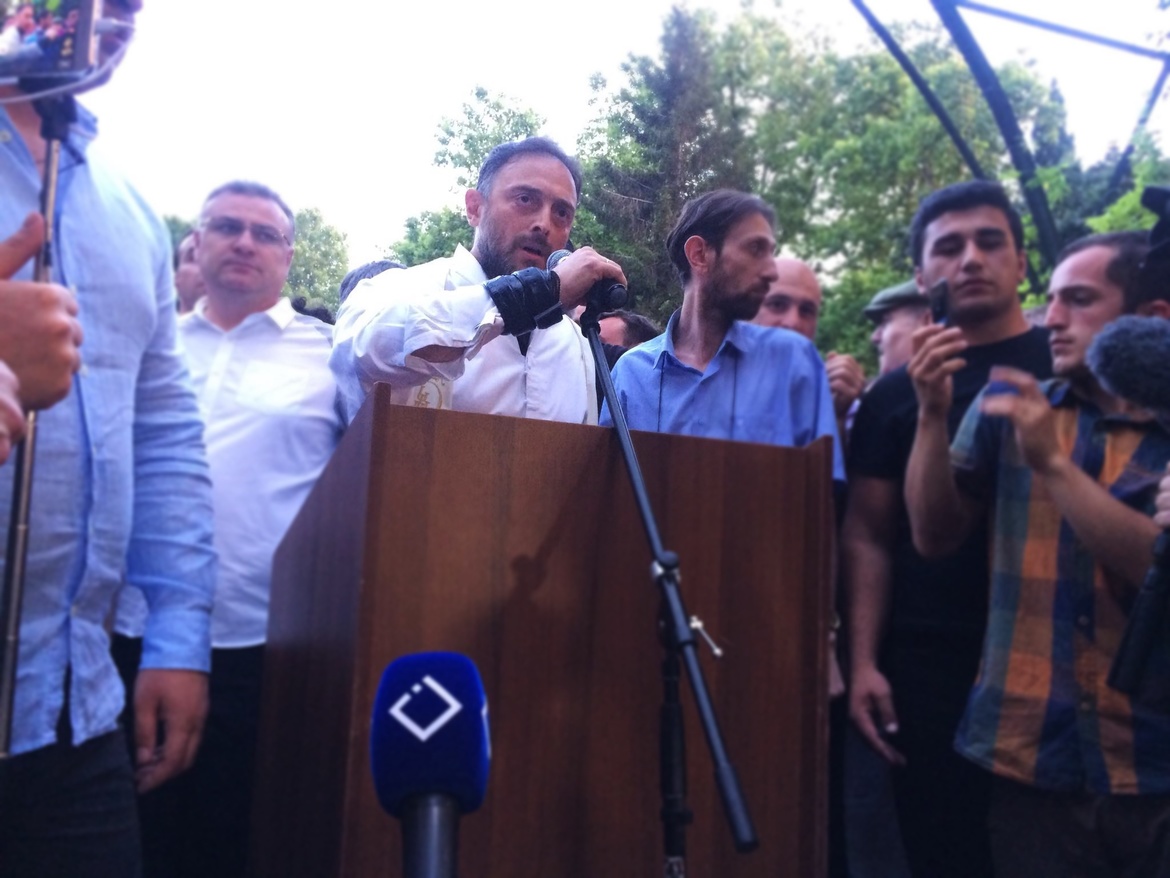
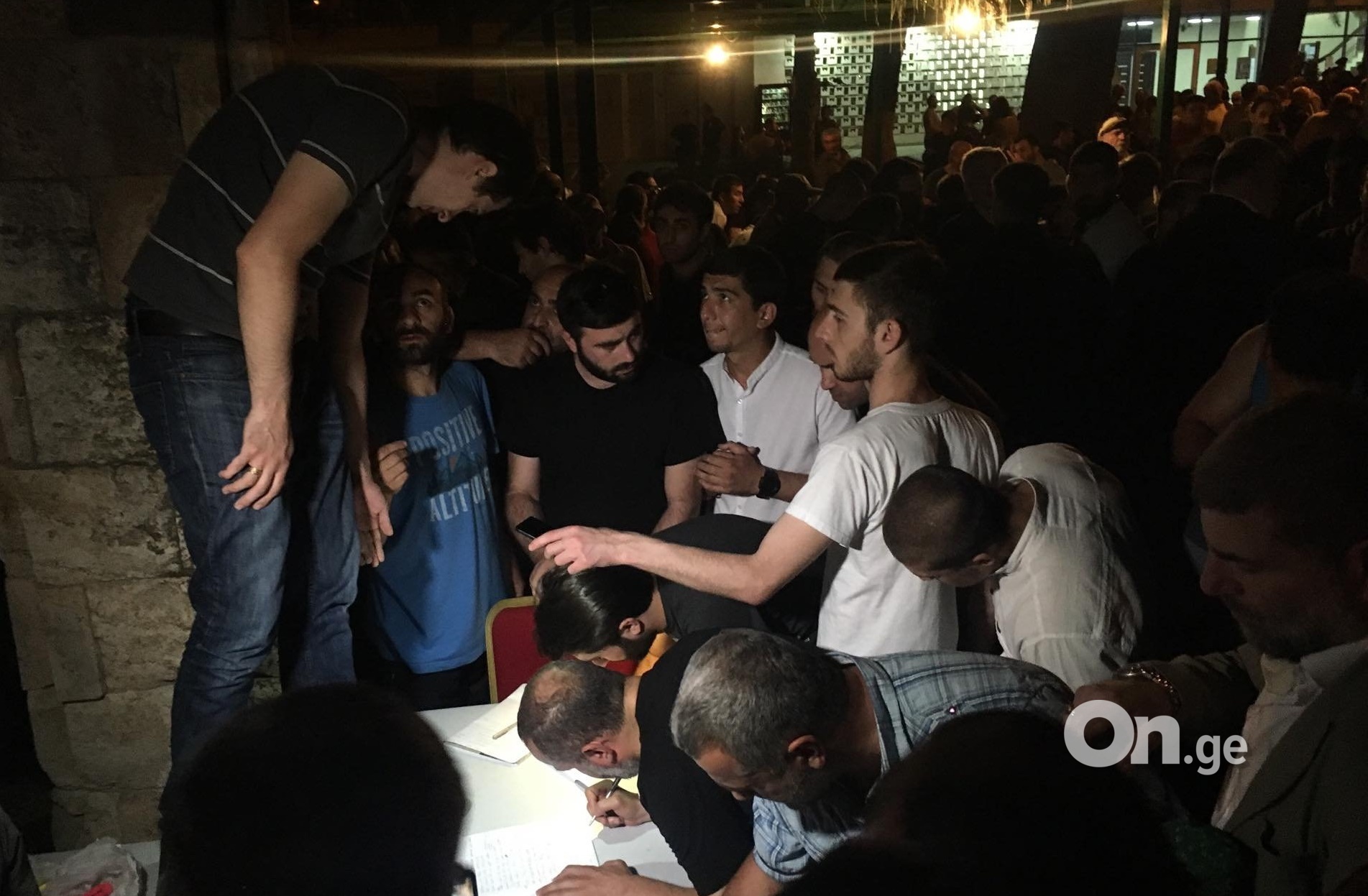
Levan Vasadze is a millionaire who acquired made his fortune in Russia. He is one of the founders of the Georgian Demographic Society XXI, a conservative union which introduced an initiative to parliament in 2015 to remove the terms ‘sexual orientation’ and ‘gender’ from the Anti-Discrimination Law.
Vasadze also represents the World Congress of Families (WCF) in Georgia, an American-based Christian evangelical anti-queer organisation that speaks in defence of the ‘natural family’.
‘We will have no weapons except one. This will be a weapon by which, if the propagandists of perversion attempt a demonstration, we will cut through any police line. And I hope they will use their brain and not do it [Tbilisi Pride]. For what? So we will bash chickens or lesbians, whining children of shameless NGOs which make money by selling their motherland? Of course not. We will tie their hands with belts, we are going to have them [belts], and we will kick them out of there’, said Vasadze.
Emzar Kvitsiani an MP from the conservative Alliance of Patriots Party said he had enrolled in the anti-queer unit.
‘Instrumentalised homophobia’
On 17 June, Public Defender Nino Lomjaria said that if Vasadze’s plans materialised, not only would human rights be at stake, but the constitutional order.
The chair of Georgian Parliament’s European Integration Committee Tamar Khulordava said Vasadze’s call was ‘extremely dangerous’ and that the government would not allow violence.
However, she added that ‘both sides are manipulating this issue’.
In a joint statement, local human rights organisations united under the Equality Coalition said that the government was not only abstaining from taking measures against homophobia but that politicians from ruling party often instrumentalise homophobia and ignore queer people and their rights.
‘Despite the trend of strengthening of anti-democratic groups, the government has not taken adequate measures to prevent radicalisation of such groups and political ideas. In certain cases, suspicion was raised that the government is loyal to them’, said their statement.
IDAHOT not marked
On 17 May 2019, queer rights activists abstained from holding a demonstration in Tbilisi for this year’s International Day Against Homophobia, Transphobia, and Biphobia over safety concerns.
After warnings from far-right groups that anti-homophobic demonstrations would be met with violence, the Equality Movement, Women’s Initiatives Supporting Group, and other queer rights groups decided to limit themselves to online campaigns only.
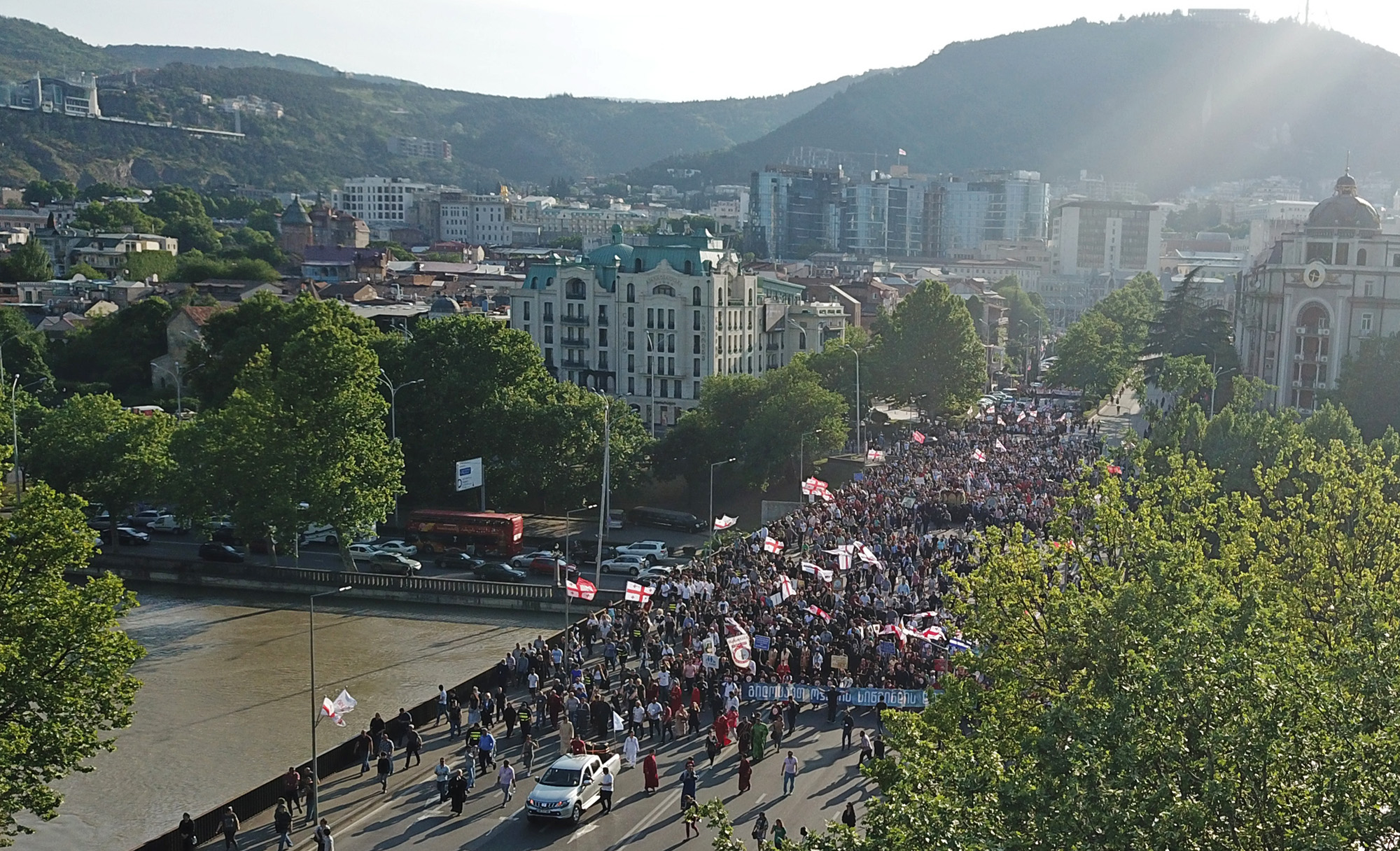
On 17 May hundreds of people, including priests, churchgoers and far-right groups took to the streets to protest ‘sodomy’.
Some of them came out to celebrate Family Purity Day, a holiday created by the Georgian Orthodox Church in 2014, a year after thousands of people led by priests attacked several dozen queer rights demonstrators in the city.
Homophobic violence in Georgia
In 2017, the Prosecutor’s Office examined 86 alleged hate crimes, 12 of which were based on sexual orientation and 37 on gender identity.
The Public Defender’s 2018 report said violence against queer people, whether in the family or in public spaces, was a serious problem in Georgia, and that the government has been unable to respond to this challenge.
The report said the Public Defender received numerous complaints regarding homophobic attitudes from law enforcement officials.
[Read OC Media’s editorial: Georgia’s government must stop legitimising homophobic violence]
‘In some cases, complainants withdrew cases and refused to cooperate with the general inspection or the Prosecutor’s Office because they didn’t believe an investigation into their cases would be timely’, the report read.
The report said transgender women in particular often appeal to the Public Defender’s Office about the violence they face.
‘Unfortunately, law enforcement officials don’t have an efficient strategy against hate-motivated violence. They react to individual cases and don’t take action against the systematic problem’, the report reads.




